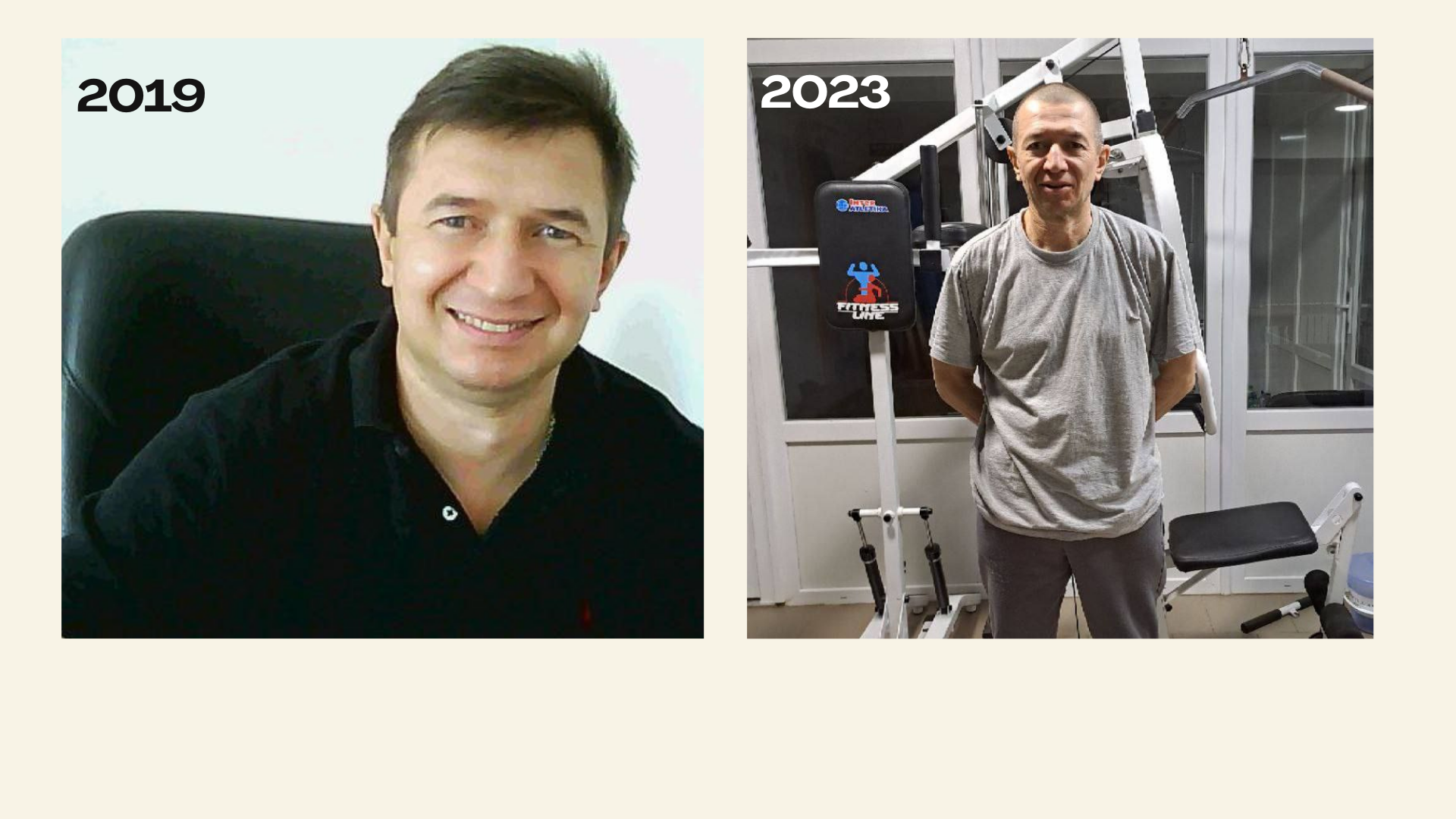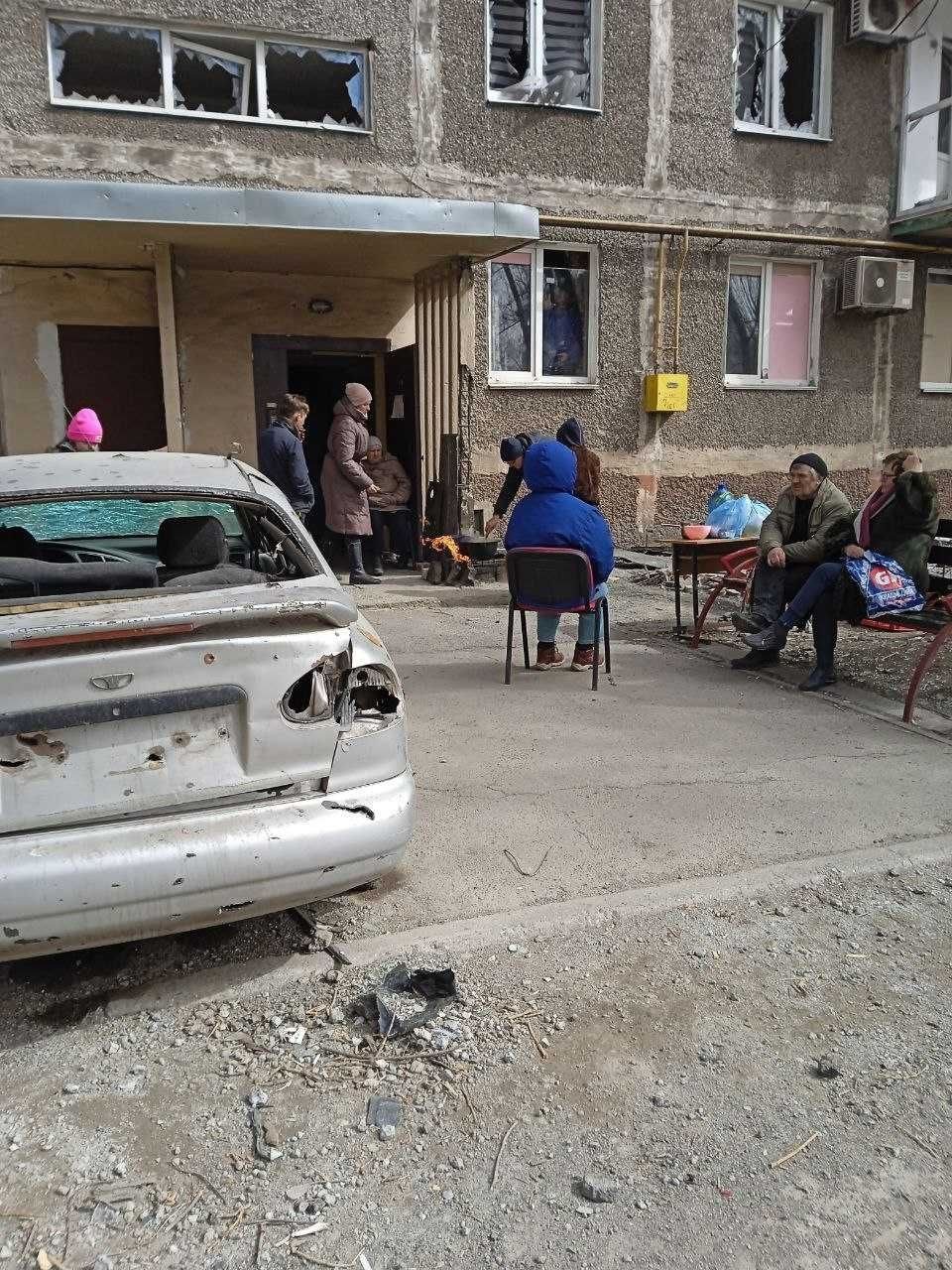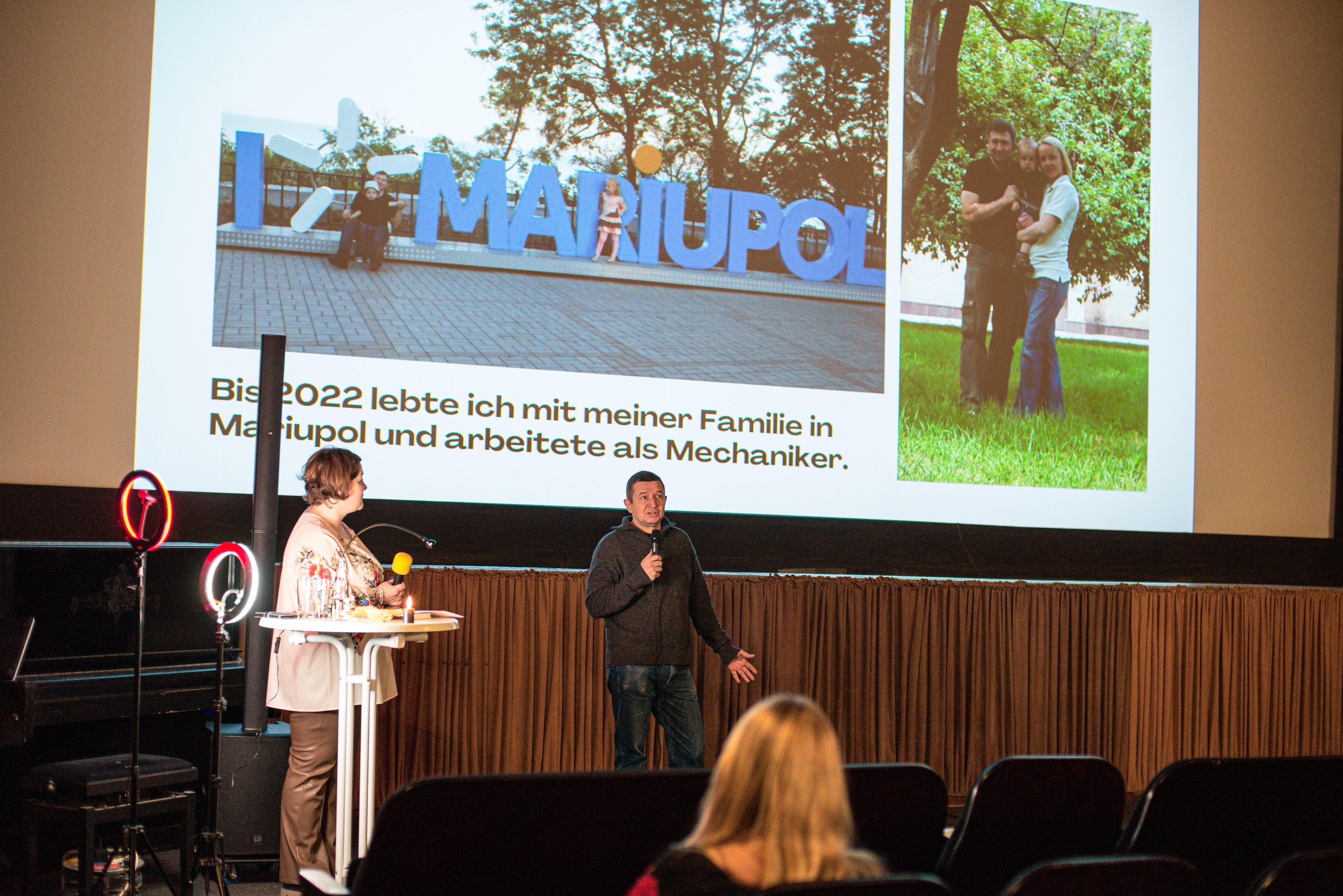"We were tortured by starvation" – Mariupol resident tells about Russian captivity
In the spring of 2022, 52-year-old mechanic Vyacheslav Zavalny was detained by the Russian military at a checkpoint in city of Pology when he was on his way to evacuate his son and wife from Mariupol. Ten long months of imprisonment followed, where he survived together with other Ukrainians, both civilians and military.
All Ukrainian prisoners, after returning from captivity, testify that one of the worst tortures in Russian torture chambers is starvation. Vyacheslav also talks about his experiences and helps law enforcement officers identify criminals who torture and execute Ukrainians in captivity.

Every year at the end of November, Ukrainians remember the millions of compatriots who died from the massive famine "Holodomor" in the 1930s. But along with the stories of our grandmothers about their relatives who died of starvation, we now hear modern stories of the pangs of hunger from Ukrainians returning from Russian captivity. Imagine systematic starvation. Here and now, in the 21st century. These are Russian methods that have not changed since the Soviet era.

"All we talked about was food"
"We all lost a lot of weight. We were tortured with hunger, and when we were sharing bread, I caught myself looking at it without taking my eyes off it and mentally eating it," says Viacheslav. He says it was hard to sleep because of the hunger.
"The only conversations in our cell were about food: everyone was thin and exhausted," Vyacheslav recalls." People in the cell were quarreling and fighting over food.
He, like many Ukrainians who were taken to Kremlin prisons during the full-scale invasion, was not told the reason for his detention. He was tortured and forced to sign blank documents.
"When they called me in for interrogation, they said there was no evidence against me. They checked my daughter's social networks but found nothing there either," Viacheslav recalls. He was forced to tell the story of his detention on camera twice for several months. In his opinion, this was done to compare testimonies.
Two thousand squats
"The guards did not allow us to sit, and we had to stand for 18 hours. There were video cameras in the cell, and if someone tried to sit down, they would beat them or force them to squat: head down, hands behind their back. Once, we did this two thousand times. Then we found "dead zones" that were not visible from the camera and took turns resting," he adds.
Vyacheslav recalls that when they were taken for a walk, it was another kind of torture:
"We had to run bent over, head down, hands behind our backs, legs half bent. During this "walk", we were beaten by heavy plastic pipes filled with sand. The blows left bruises on our bodies. There was a terrible scream of pain around."
The prisoners were kept in a complete information vacuum. They were constantly tortured, interrogated daily, ignored requests for medical care, and deprived of food.
Torture and executions
"I was in hell. During my imprisonment alone, at least four Ukrainians were executed in the torture chamber in Donskoye, Tula region. Two were executed in Kursk. These are the executions that I know about," says Viacheslav, looking at photos of executioners working in Russian prisons.
Vyacheslav says that the Russians did everything to ensure that the prisoners if they returned to Ukraine, would become traumatized people, a burden to society:
"They would wake us up at night, turn on the bright lights abruptly - they deliberately disturbed our sleep so that we could not recover and rest."
Ukrainian law enforcement officers are currently identifying these criminals — the heads of Russian prisons and executors — and preparing notices of suspicion.
Yulia Polekhina, a lawyer with the Sich Human Rights Group, who has been documenting the testimonies of Ukrainian military and civilians after their captivity in Russia since 2015, says that all the interviewees, like Vyacheslav, talk about torture by starvation, and doctors record the extreme stage of exhaustion caused by prolonged hunger strikes. The lawyer urges every witness of the crimes not to remain silent:
"Those who are released must testify about crimes in places of detention of Ukrainians in the temporarily occupied territories and Russia. Thanks to this information, the National Police investigators prepare suspicions and submit cases to the court."
Support TEXTY.org.ua
TEXTY.ORG.UA is an independent media without intrusive ads and puff pieces. We need your support to continue our work.
Daughter
His daughter, Karina Dyachuk, did a lot to help secure Vyacheslav's release. She not only became an activist and organized a powerful movement in support of civilians in Russian captivity but also, together with other relatives of illegally detained Ukrainians, created the Civilians in Captivity NGO. Karina knocked on every possible door, wrote many letters and appeals to Ukrainian government agencies, and tried to find Russian lawyers who could possibly help establish her father's place of detention. And, most importantly, she believed in his return.
Finally, on January 8, 2023, 50 Ukrainians were exchanged, including Vyacheslav. At the time of his release, the man weighed only 55 kilograms. Later, he underwent two surgeries, recovered for a long time, and could not gain enough weight despite a healthy diet.
Starving to death since 2014
Iryna Badanova, an expert in the coordination group for the search and release of prisoners of war at the support department of the General Staff and the Ministry of Defense from November 2015 to June 2024, says she first received information about torture by starvation and lack of water in 2014, after the release of soldiers from the 30th Separate Mechanized Brigade:
"The guys told me about being in a "pit" where 37 prisoners were held together. They were given only a three-liter bottle of water and a loaf of bread a day. It was a hot August, so they suffered even more from lack of water than from hunger."
Even at that time, Ukrainian prisoners were interrogated not only by local separatists but also by the military of the Russian Federal Intelligence Service. This confirms that torture by starvation of Ukrainian prisoners has been used for more than a decade.
"Everyone who returns from captivity has all the signs of exhaustion: pale skin color, significant weight loss (sometimes more than one-fourth of the weight before captivity), hair and teeth loss, severe diseases of the stomach, esophagus, liver, and pancreas that require long-term treatment," says the expert, adding that starvation and lack of water affect the psyche of former prisoners: — "After their release, they either cannot satisfy their hunger, even if they receive enough food rich in proteins, fats, and vitamins. Or, on the contrary, they refuse to eat those foods that seem so forgettable to them that just the sight of them can cause nausea and even dizziness."
It is this disorder that can be assessed as the most traumatic because it requires not only long-term gastro-logical treatment but also the careful work of a psychologist and psychiatrist.
Stories of mass famine 90 years later
Recently, Vyacheslav took part in an event dedicated to the Holodomor Remembrance Day in a cinema in the German city of Burg. On that day, the Ukrainians in Burg NGO organized a screening of the Ukrainian short film Red Necklace, dubbed into German the day before, about the story of a girl's life in 1933. After the screening, he told the audience his story.

"The story of Vyacheslav in 2022 and my grandmother in 1933 have common features," says human rights activist, director, and author Tetiana Vysotska," The Russian Federation is deliberately starving captured Ukrainians today, just as it did during the Holodomor when all food was taken away from families, leaving them no chance of survival. These are crimes against humanity that are designed to destroy human nature itself. And they are repeated."
Thousands of Ukrainian civilians are being held in Russian prisons in the occupied territories of Crimea and Russia. They are not allowed to communicate with their loved ones because Russia conceals its crime by not confirming information about the detainees and not allowing international organizations to visit the places of detention. And now, unfortunately, there are no mechanisms for returning civilians from Russian captivity.
Ukrainians are no longer shocked by stories of torture in Russian captivity told by those who have returned home. But it is important to tell them. Foreigners do not always know that Russians take civilian Ukrainians prisoner and hold them for years without any reason, even formal ones, even though the detention of civilians is strictly prohibited during international armed conflict under the Geneva Conventions relative to the Protection of Civilian Persons in Time of War.
The impressions of the German audience are reflected in the comments shared by the event visitors.
"These stories are so scary and sad. In our time, something like this is unimaginable... I cannot understand why there are people who justify this war. I am sorry about what is happening in your country. I hope that Ukraine will win," shared her impressions of German Danielle.
"It was very sad, but it is very important to hear. The world needs to know about the numerous inhuman crimes committed by the Russians and about your long struggle for Ukraine's independence and freedom," Jürgen shared his impressions on social media.

